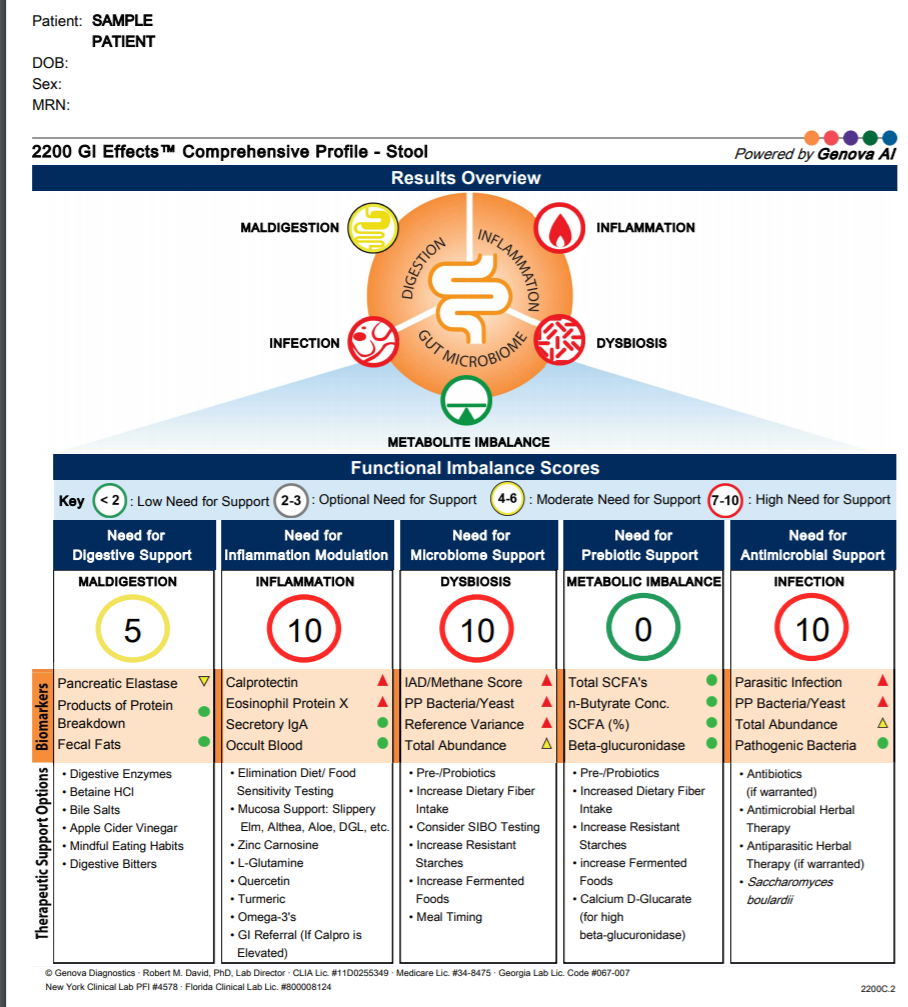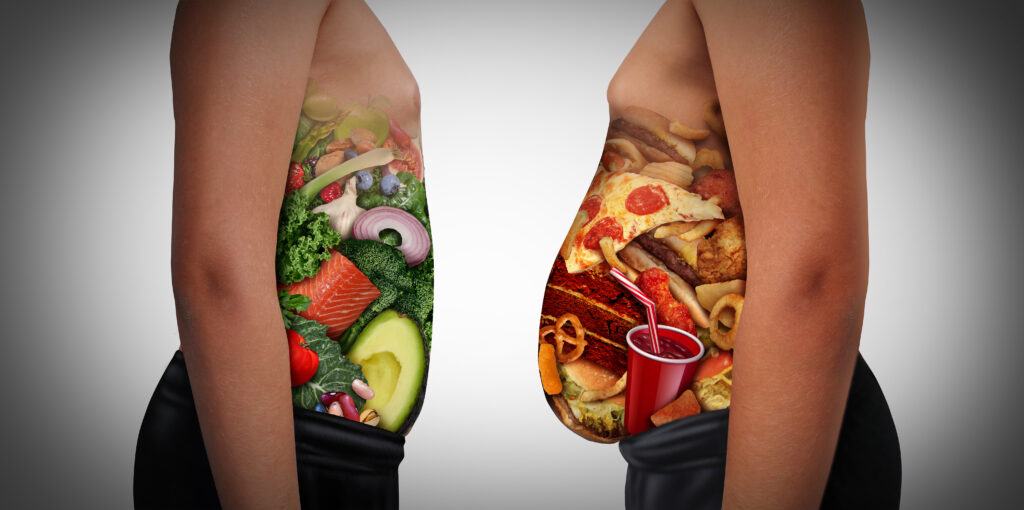
The first and most important part of regaining or optimizing your health is to clean your digestive system so that you can get all the nutrients from your food to where they are needed so that all your cells and organs work optimally. Secondly, a ‘clean’ digestive system will help you to avoid opportunistic infections such as candida and parasites, but it is important to understand that ‘clean’ means in this context because a healthy digestive system is one that has the right balance between good and bad bacteria, it is not about undergoing colonic irrigation if you do not need it!
How to Clean your Digestive System
Before you can clean up your system, you need to understand what is happening behind-the-scenes, what is working well and what is suboptimal.
Stool Profiles provide immediate, actionable clinical information for the management of a wide range of health problems (including irritable bowel syndrome) by examining your gastrointestinal health which is central to your overall health, energy, vitality and immunity.
Digestion/Absorption
Can you break your food down and get the nutrients to where they are needed? Efficient and effective digestion is the only way your body can heal, recover from illness or reach peak performance, no matter what your symptoms are! If you cannot break down your food properly, you will not be able to extract the nutrients from it. If you are on medication to regulate acidity in your stomach such as omeprazole, lanzoprazole or gaviscon, then there is already an issue with your gut microbiome that needs to be addressed.
Digestion begins in your mouth where sugars are broken down, but inadequate chewing may also lead to outer fibrous matter in your food acting as a protective container that stops your body from getting at any nutrients. This improper breakdown of food can cause it to ferment in your gut causing gas, bloating and abdominal discomfort. The gasses produced during fermentation also provide the ideal breeding ground for certain types of bacteria, which will also thrive if you are stressed because high stress hormones lower digestive hormones.
Inflammation/Immunology:
Your immune system has many ‘layers’, but this test looks at your ‘innate’ immune system which is your front line of defence. If your immune system is strong, it may well be fighting off infection behind the scenes without you even being aware that you have come into contact with something undesirable.
The benefit of this test is that we can see what is happening ‘behind-the-scenes’ to find out how taxed your front-line of defence is. For example, if you have been stressed, there is a strong possibility that you will have opportunistic infection in your gut such as candida. You may even have a parasitic infection without knowing, or SIBO (small intestinal bacterial overgrowth). If your innate immune system is working hard to combat opportunistic infection, then you are not getting the full goodness from your diet even if you do eat healthily. You will also be more likely to have cravings, especially for sweet things, which can have knock-on effects on other areas of your health.
Gut Microbiome
Stool testing can uncover imbalances in yeast, parasites, and healthy and unhealthy bacteria that live in the large intestine. This bacterial population is called the microbiome.
Your entire gut from your mouth through your stomach and intestines right down to your anus and vagina is a kind of ‘ecosystem’ where there needs to be a healthy balance between the good and bad bacteria. Any imbalance can lead to inflammation which is the root cause of all disease.

Infection
The stool samples are tested for the presence of occult blood, parasites, yeast overgrowth and, if necessary, for other pathogens. The sample will be ”cultured’ in the laboratory to see if anything grows over the weeks. If it does then they will test it with natural foods or herbs to see if that eradicates it. They will also use pharmaceutical drugs and advise on the efficacy of each one they recommend. Armed with this information, we incorporate these results into your diet, nutrition and supplement plans, but if this proves to be insufficient, you can take the report to your GP and ask them to prescribe whatever the laboratory has recommended.
Metabolic Imbalance
Metabolism is what happens when your food is broken down in your gut. This healthy process is particularly disrupted when you are overweight or have an hormonal imbalance that leads to insulin resistance. This test measures the key metabolites and gives you an indication of their function using a ‘traffic light’ system so you can prioritize any imbalances according to severity.
5 Signs of metabolic imbalance that can lead to Metabolic Syndrome:
- Too much fat at the waist
- High blood pressure
- High triglyceride levels
- Low HDL cholesterol (also known as “good cholesterol”)
- High fasting glucose (blood sugar)
Symptoms you may be experiencing
- Gas
- Bloating
- Indigestion/ reflux
- Abdominal pain/ cramps
- Diarrhoea
- Constipation
- Inflammatory Bowel Disease (IBD)
- Irritable Bowel Syndrome (IBS)
- Atopic dermatitis/ eczema
- Allergies
- Autoimmune diseases
- Mood disorders (depression)
- Joint aches
- Diabetes
- Weight issues
- Regressive Autism: what it is and how to spot it
- Nutrition for Autism: Finding A Diet for Your Child with Autism Spectrum Disorder (ASD)
- CMY Sensory Cube: the best sensory toy for autism?
- ASD and ADHD: Tackle the Root Causes with A Functional Medicine Approach to Autism
- Salicylate Intolerance: how to recognize and manage it
